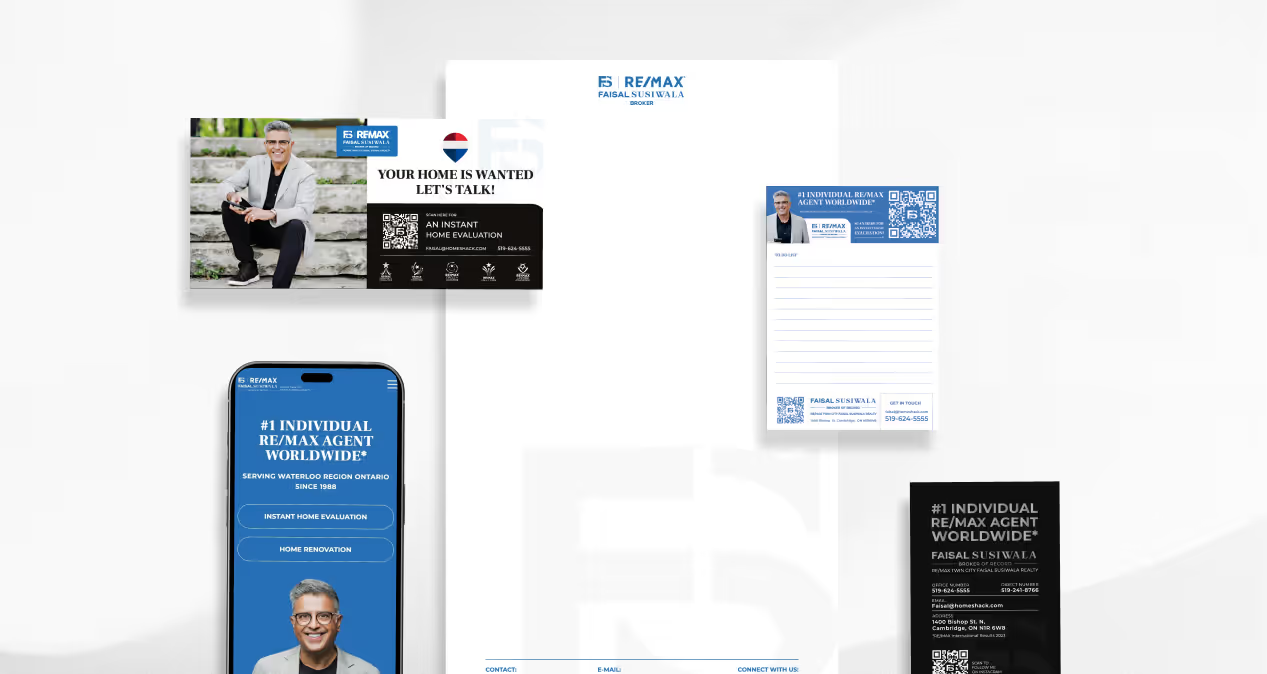
Real estate branding is an essential aspect of any successful real estate business. A strong brand identity can help you stand out in a crowded marketplace and establish a reputation as a trusted, reliable, and authoritative source in the industry. In this ultimate guide, we will explore the different elements of real estate branding strategy and provide tips on how to create a powerful brand that resonates with your target audience.
Understanding Real Estate Branding
Real estate branding refers to the process of creating a unique identity for your business that reflects your values, mission, and services. A brand is not just a logo or a name, but an emotional connection that you create with your audience. When done right, real estate branding can help you differentiate yourself from your competitors and establish a loyal customer base.
The Importance of Branding in Real Estate
Branding is crucial in real estate because it is a relationship-driven industry. Clients rely on their real estate agents to guide them through the complex process of buying or selling a property, and trust is essential to building and maintaining that relationship. A strong brand can convey that trust and establish your reputation as an expert in the field.
Moreover, in a highly competitive industry like real estate, branding can help you stand out from the crowd. A well-defined brand can help you attract new clients and retain existing ones, creating a steady stream of business.
Developing a Brand Strategy

Developing a brand strategy involves several key steps, including defining your brand identity, identifying your target audience, and crafting your unique value proposition.
Defining Your Brand Identity
Your brand identity is the set of characteristics that define your business and differentiate it from your competitors. It includes your mission, values, and voice, as well as your visual identity. Defining your brand identity requires you to think about your company's core values, what you stand for, and what makes you unique.
Identifying Your Target Audience
Identifying your target audience is essential in real estate branding. You need to know who your ideal clients are, what their needs and preferences are, and how to reach them effectively. Creating buyer personas can help you understand your target audience better and tailor your marketing messages accordingly.
Crafting Your Unique Value Proposition
Your unique value proposition (UVP) is what sets you apart from your competitors and gives your clients a reason to choose you over others. Your UVP should be clear, concise, and focused on the benefits that you can provide to your clients. It should address their pain points and offer solutions to their problems.
Creating a Brand Name and Logo
Creating a brand name and logo is an essential part of real estate branding. Your brand name should be memorable, easy to pronounce, and relevant to your business. Your logo should be visually appealing, easy to recognize, and reflective of your brand identity.
Building Your Online Presence
Building your online presence is critical in today's digital world. Your website is your virtual storefront and is often the first impression that potential clients will have of your business. It should be well-designed, easy to navigate, and optimized for search engines.
Website Design and Development
Your website should reflect your brand identity and provide a positive user experience. It should be visually appealing, mobile-friendly, and have clear calls to action that guide visitors towards your desired outcomes. Working with a professional web designer can help you create a website that meets these criteria.
Search Engine Optimization (SEO)
Search engine optimization (SEO) is the process of optimizing your website to rank higher in search engine results pages (SERPs). SEO involves a combination of on-page and off-page optimization techniques, including keyword research, content optimization, link building, and social media marketing.
Social Media Marketing
Social media marketing is an excellent way to build your online presence and connect with your target audience. You can use social media platforms like Facebook, Instagram, and Twitter to share valuable content, engage with your followers, and promote your services.
Offline Branding Strategies

While online branding is essential in today's digital world, offline branding strategies can also be effective in building your brand and connecting with your audience.
Print Materials
Print materials like business cards, brochures, and flyers can help you establish your brand identity and leave a lasting impression on potential clients. Your print materials should be well-designed, visually appealing, and reflective of your brand identity.
Networking and Referral Marketing
Networking and referral marketing can help you build relationships with other professionals in the industry and generate new business. Attend industry events, join professional organizations, and ask for referrals from satisfied clients.
Event Marketing
Hosting or sponsoring events can help you generate buzz around your brand and connect with potential clients. Consider hosting open houses, charity events, or seminars that align with your target audience's interests.
Measuring and Analyzing Your Brand's Performance
Measuring and analyzing your brand's performance is crucial in identifying areas for improvement and ensuring that your branding efforts are working effectively.
Key Performance Indicators (KPIs)
Key performance indicators (KPIs) are metrics that you can use to track your brand's performance. KPIs can include website traffic, social media engagement, lead generation, and conversion rates.
Analytics Tools
Analytics tools like Google Analytics can help you measure and analyze your website's performance. Use these tools to track your KPIs and identify areas for improvement.
Maintaining and Evolving Your Brand
Maintaining and evolving your brand is an ongoing process that requires constant attention and effort. Continue to monitor your brand's performance, adapt to changing market conditions, and evolve your branding strategy as necessary.
FAQs
1. How long does it take to develop a real estate branding strategy?
Developing a real estate branding strategy can take anywhere from a few weeks to several months, depending on the complexity of your business and the scope of your branding efforts. It's important to take the time to research your target audience, analyze your competition, and develop a clear brand identity that reflects your unique value proposition.
2. What are some common mistakes to avoid when developing a real estate brand?
Some common mistakes to avoid when developing a real estate brand include:
- Focusing too much on yourself instead of your target audience
- Failing to differentiate yourself from your competitors
- Neglecting to conduct thorough research on your target audience and competition
- Inconsistency in your branding efforts, such as using different logos or brand messaging
- Overcomplicating your brand identity and messaging
3. How important is social media marketing in real estate branding?
Social media marketing is an essential component of real estate branding in today's digital world. It provides a platform to engage with your target audience, share valuable content, and promote your services. By building a strong social media presence, you can establish your brand as a trusted source in the industry and generate new business.
4. How can I measure the success of my real estate branding efforts?
Measuring the success of your real estate branding efforts involves tracking key performance indicators (KPIs) such as website traffic, social media engagement, lead generation, and conversion rates. Use analytics tools like Google Analytics to measure and analyze your KPIs, identify areas for improvement, and adjust your branding strategy accordingly.
5. What are some tips for evolving my real estate branding strategy over time?
Evolving your real estate branding strategy over time is crucial in staying relevant and competitive in the industry. Some tips for evolving your branding strategy include:
- Conducting regular market research to stay up to date on industry trends and changes
- Continuously monitoring your brand's performance and KPIs
- Adapting to changes in the market and consumer behavior
- Rebranding if necessary to reflect changes in your business or market conditions
- Continuously improving your online and offline branding efforts
By following these tips, you can ensure that your real estate branding strategy remains effective and relevant over time.



.jpg)


.jpg)

